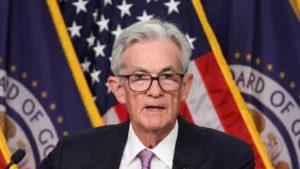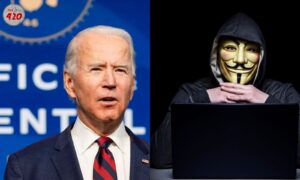
Concerns Grow Over Trump’s Return: DOJ Prepares for Potential Challenges
As Donald Trump prepares for a possible return to office, concerns grow within the Department of Justice (DOJ) and other federal agencies about what his leadership might entail. With apprehension over potential policy shifts and actions across various branches of the government, officials are wary of the changes his return could bring to the structure, operations, and focus of key agencies.
DOJ Officials Brace for Trump’s Return
Tensions over Policy Shifts and Leadership Styles
The DOJ has been a focal point of scrutiny under Trump’s previous administration, marked by controversial leadership changes and public clashes between Trump and the agency over cases involving his allies. Many DOJ officials are now reportedly concerned about the direction Trump could take the agency if he returns, fearing significant shifts that may impact the judiciary’s independence and potentially reshape U.S. legal policy.
Under Trump’s leadership, the DOJ often found itself in the spotlight due to Trump’s unprecedented involvement in high-profile cases and investigations. In his previous term, Trump was publicly critical of the DOJ and FBI, sparking concerns over political interference. His return could bring back this tense dynamic, especially if he prioritizes policies aimed at scrutinizing and possibly restructuring parts of the justice system to align with his administration’s goals. With Trump’s potential reappointment, DOJ officials are reportedly preparing for possible purges and policy changes that could have lasting impacts on the institution.
Trump’s Approach to the DOJ and Federal Agencies
A History of Policy Overhaul and Restructuring
If Trump returns, his administration may reintroduce reforms that reflect his perspective on law enforcement and judicial independence. During his previous term, Trump expressed dissatisfaction with what he viewed as an entrenched “deep state,” a network of career government officials he saw as opposed to his policies. This led to a series of personnel changes within federal agencies, particularly the DOJ and FBI.
Trump’s stance on the DOJ reflects his broader views on the role of government agencies in implementing his vision. For instance, during his presidency, Trump often clashed with the FBI, particularly regarding investigations into Russian election interference and the handling of sensitive cases. These conflicts highlight Trump’s willingness to challenge federal agencies, potentially to bring them under closer executive control. A renewed term could reignite these tensions and set a precedent for increased executive influence over traditionally independent agencies.
Potential Policy Impacts across Federal Branches
Focus on Law Enforcement and Immigration
A hallmark of Trump’s administration was his emphasis on law enforcement and strict immigration policies, both of which are expected to return to the forefront if he assumes office. Trump’s approach could once again prioritize these areas within the DOJ, directing resources and policy changes to combat illegal immigration, increase law enforcement funding, and potentially limit the scope of federal investigations into his allies.
Trump’s prior tenure saw significant policy changes, including the implementation of controversial programs such as “zero tolerance” at the U.S.-Mexico border, which led to family separations. With immigration being a critical issue for his base, Trump’s return could mean a reversion to these policies, with new directives issued to the DOJ and Department of Homeland Security. DOJ officials are reportedly concerned about the agency’s shift toward stringent immigration policies that could divert resources from other criminal justice matters and focus efforts disproportionately on border security.
A Shift in Federal Prosecutions and Case Prioritization
Officials within the DOJ are also concerned that Trump’s return could mean a reorientation of federal prosecutions, with an emphasis on cases that align with his administration’s agenda. Trump’s first term saw a focus on prosecutions related to violent crime and immigration offenses, with a reduced emphasis on white-collar crime and other areas not seen as priorities under his administration.
The DOJ could potentially see a change in the type of cases prioritized under a second Trump administration. For example, cases related to election fraud, an issue Trump has vocalized concerns over, could receive increased attention and resources. Such a shift may lead to a reallocation of DOJ resources, affecting ongoing investigations and the federal approach to legal issues unrelated to Trump’s agenda. These potential policy changes are raising concerns among DOJ officials, who worry about the potential long-term effects on the justice system’s impartiality and independence.
Potential Staffing and Structural Changes
Fears of Leadership Overhaul within the DOJ
In addition to policy shifts, DOJ officials are bracing for possible leadership changes, with Trump likely to bring in new personnel who align with his policy goals. Trump’s previous administration saw high turnover rates within federal agencies, with several high-ranking officials being dismissed or replaced. The DOJ, in particular, experienced significant upheaval, as Trump replaced attorneys general and pressured agency heads on multiple occasions.
There are fears that Trump’s return could mean a re-staffing effort at the DOJ and other key agencies, with loyalists and supporters occupying crucial positions. Such changes could further politicize the DOJ and potentially impact the agency’s ability to operate independently. Federal agencies, designed to serve the country objectively, may face challenges in maintaining impartiality if Trump moves to staff them with allies who support his political agenda.
The Impact of “Schedule F” on Civil Service Protections
One of Trump’s plans during his prior term included the implementation of an executive order known as “Schedule F,” which sought to alter the classification of certain civil service employees. Although ultimately halted, “Schedule F” would have removed job protections for many government employees, allowing for the potential removal of those deemed as opposed to the administration’s policies.
Trump’s return could revive this initiative, and his administration could implement it more aggressively to restructure the federal workforce, particularly within the DOJ and other agencies. If reinstated, “Schedule F” could lead to significant changes in the civil service, impacting job security and enabling the administration to streamline agencies to reflect its political aims. Many within the DOJ see this as a potential threat to the agency’s independence and continuity.
International and Domestic Repercussions of Trump’s Return
Concerns over Global Relations and U.S. Foreign Policy
Trump’s previous term was marked by contentious relationships with international allies and a willingness to challenge traditional diplomatic norms. A return could mean a revival of policies that prioritize national sovereignty over multilateral agreements, impacting the DOJ’s approach to international legal cooperation.
The DOJ’s role in international law enforcement, particularly on issues like cybersecurity and counter-terrorism, could be impacted by Trump’s foreign policy stance. Relations with international allies could shift, and cooperative efforts may take on a more isolated approach. DOJ officials are concerned that Trump’s foreign policy could impact areas like extradition treaties, international crime fighting, and cross-border legal cooperation, potentially straining relations with longstanding allies.
Domestic Polarization and Public Confidence in Federal Institutions
Trump’s return also raises concerns over increased political polarization, with the DOJ at risk of being perceived as a politically influenced entity rather than an impartial institution. Public trust in the justice system is vital for democratic integrity, and any perceived politicization could impact citizens’ views of fairness and accountability.
DOJ officials worry that Trump’s influence could erode confidence in the institution, affecting its long-term reputation and role within the government. The possibility of increased partisanship and politicization under Trump’s leadership could undermine the DOJ’s efforts to uphold the rule of law impartially, challenging its core mission and potentially impacting the agency for years to come.
Conclusion: A Critical Moment for the DOJ and U.S. Governance
As Donald Trump’s return looms, the DOJ and other federal agencies face a pivotal moment in determining how they will navigate potential changes and preserve institutional independence. The stakes are high, with impacts that could redefine the role of the DOJ and set a precedent for executive influence over federal agencies.
Image credit – businesstoday.in



1 thought on “Concerns Grow Over Trump’s Return”
Comments are closed.